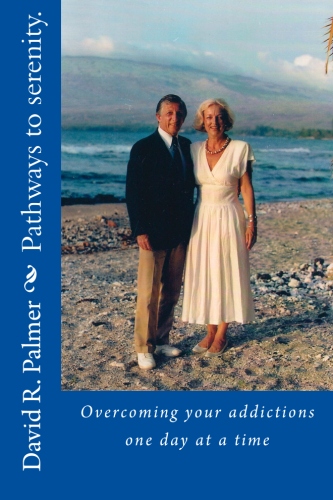By Christopher Kennedy Lawford
William Morrow
$25.99
“The morning of February 17, 1986, I woke up, as usual, with that weight in the pit of my stomach, knowing that all I had in front of me was another day of dancing with the 800-pound gorilla of addiction.”
And so begins Chris Lawford’s “moment of clarity” as he reports it in his introduction to this great book about how people recover from addictions—in this case 42 well-known people, many of them celebrities.
Lawford, whose father was actor and rat pack member, Peter Lawford, and whose mother, Pat Kennedy, is the sister of John F., Robert and Ted Kennedy, is, of course, a celebrity himself.
Lawford was born into a famous family, but he is also an actor and established author in his own right. He is also a lawyer, graduate of Harvard University with a Master’s degree in Psychology and serves as a public advocacy consultant with Caron treatment centers, a nationally recognized provider of alcohol and drug addiction treatment.
Recently, Lawford came to Little Rock to attend the 21st American Bar Association National Conference for Lawyers Assistance Programs as one of the main speakers. I heard him speak for an hour about his own moment of clarity and recovery, and we also shared a diet coke in the Peabody Lounge for further background.
Just to give you a sample of who is in the book, there are some really well known movie star types like Alex Baldwin, Jamie Lee Curtis, Tom Arnold, Lou Gossett, Martin Sheen, Richard Dreyfus and Kelly McGillis (remember her in Witness?), for example.
Then there are famous musical performers like Judy Collins and Elaine Stritch, sports figures like boxer Gerry Cooney, authors like Susan Cheever, commentators like Larry Kudlow and politicians like former Republican Congressman Jim Ramstad.
They all speak of that moment of clarity, which preceded their decision to surrender and seek the new path described by Psychiatrist Carl Jung in the front of Lawford’s book.
After he confronted his 800-pound gorilla, Lawford continues, “I got out of bed and walked over to the windows that looked out onto Commonwealth Avenue—I was living in one of those beautiful old Boston Brownstones, and it had giant picture windows floor to ceiling. I just stood there and stared out at the city. Everything was gray, gray and bleak and freezing cold, and that matched what I was feeling inside. I thought, “This is bad. This is as bad as it can get.
“I knew I could not exist anymore in that state. I had to either die or change, and I didn’t have a gun to put in my mouth, so I had to change, and the only way I could change was to surrender. So I did. I said to whatever was out there, ‘you know what? I give up. I absolutely, unequivocally give up. I’m not talking about I give up so I can fight another day. Whatever you want me to do, I’ll do it. And I realize now, that was it. That was the opening through which grace entered my life.”
Later, Lawford got down on his knees and asked for “this thing to be removed” and within a few months it was. “That thing that I was absolutely powerless over, that had vanquished me for seventeen years, was lifted out of my life, and it hasn’t come back since, in over twenty-two years.”
Those who are currently struggling with active addictions will find hope and encouragement in these pages and those who are already in recovery will find strong affirmation that they have done the right thing.
Malachy McCourt, a versatile actor and author who, as Father Clarence, dispensed advice to the citizens of Pine Valley in the daytime soap, “All My Children,” once said with a wink, “ We all get clean and sober eventually, but its best to do it while we are alive. It’s much more fun.”
It was McCourt, too, who said in the depth of his addictions, “I’m an atheist, thank God.”
In the end he capitulated and put up a sign in his office donated by his wife Diana. It said, “Good morning. This is God. I will be handling your affairs today, and I will not need your help. Have a nice day.”
Velvet Mangan who started Safe Harbor, which has helped thousands of women find their way to recovery, tells of her moment of clarity in these terms: “I was lying in my room, wanting to take my life again. My little seven-year-old son comes in, and he lies down on my bed, and he starts to sob. He says, ‘Mama, when you believed in God you were healthy, and as soon as you stopped believing in God you got sick.’
“And it was like…all those clouds, everything that I was trying to convince myself was there, all that went away. I could not question the truth when it came from him.”
And how do all these charming, passionate and wonderfully human people stay sober? “Trust God, clean house, help others” pretty much sums it up.



